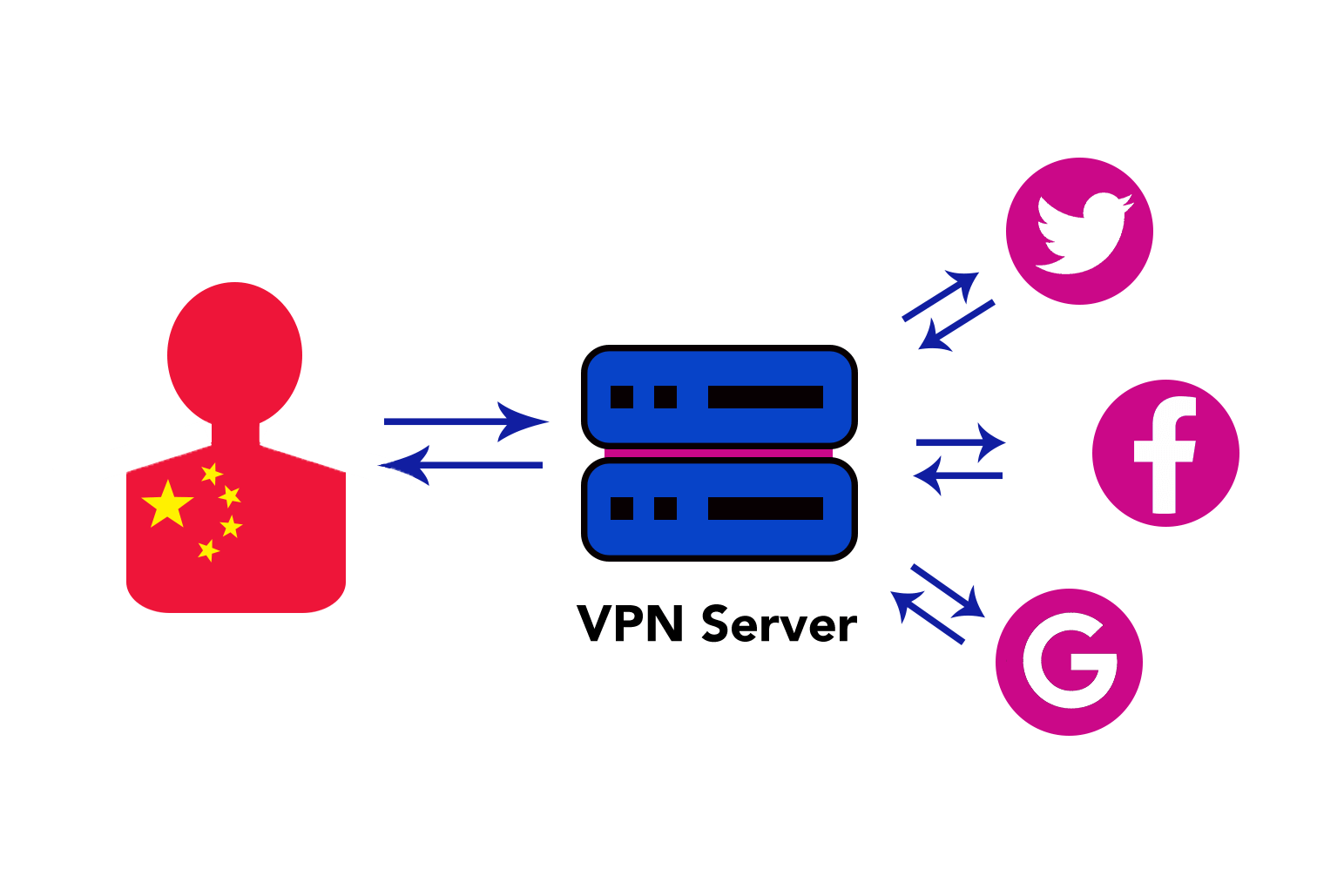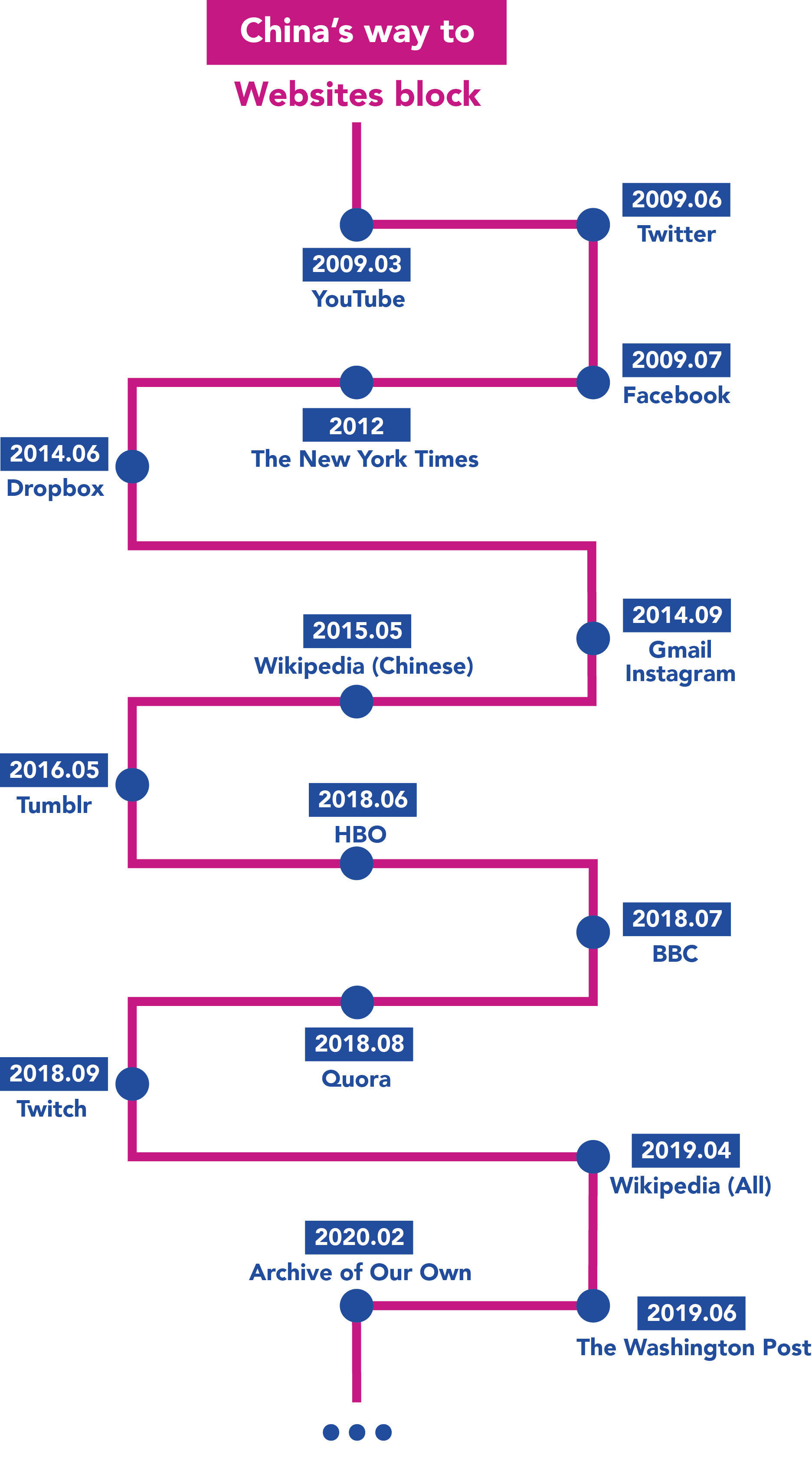Turning on the laptop, connecting to Shadowsocks, and then accessing Google. These are the necessary steps for some students in mainland China to complete their homework every day.
During the outbreak of the coronavirus, many mainland students enrolled in colleges in Hong Kong have to stay in the mainland. In order to take online classes and complete course assignments, they need to scale the so-called Great Firewall, a virtual online barrier that keeps people in China out of specific foreign websites. Using Virtual Private Networks such as Shadowsocks, is a way to gain access to the uncensored Internet.
Since the early 2000s, China has gradually blocked a large number of overseas websites including Google and Facebook. In recent years, the government has turned up the heat in its control of the network so that VPNs have become more and more vital for people to cross the Great Firewall.
Here is a guide to what you may want to know about VPN in China.
What is VPN?
VPN routes your device's internet connection through a private server rather than your Internet Service Provider. That way, it masks the identity of your device because all of your data will appear to come from a private server and enables you to operate data that can only be operated through the private network.
By using VPN, software running on a computer or a mobile phone can gain some rights that only a private network has, such as security and some specific function such as internal resources of an organization. Take The Young Reporter for example, as a student publication the portal of TYR can only be logged in and managed when the user's device is connected to the university's network. In order to operate the portal remotely, editors need to use a VPN so that their devices can connect to the private network of the school.
VPN was not initially invented to cross network blockades, but in China, many people use VPN as a way to climb over the Great Firewall to get to the international Internet beyond.

When Chinese netizens want to visit websites which are censored by the government, the government's monitor can find out and block them. However, if you use a VPN as a transit station, the monitor can only find you visiting a VPN server. Since the VPN transmission is encrypted, the monitor cannot crack what information is being transmitted between you and the VPN server, so the connection won't be cut off.
VPN is like a transit station or a proxy. For instance, when a Chinese network user wants to use Google, instead of using the computer to connect to Google directly, he will first connect to a VPN server and send instructions to it. Then the VPN server will connect to Google and pass back the content to the user.
How do people get access to VPN?
Having a VPN account which provides the server's connection address, username, password, etc is the first step. A few years ago, there was still some free VPN software, through which connections to the overseas Internet could be made.

Chen Naiqi, 48, started using VPN from around 2012. He recalled that at that time he could cross the firewall through the plug-in module carried in the browser, but the Internet speed was very slow, and it often took several minutes to open the web page.
In recent years, most VPNs have been blocked by the Chinese government, especially the free ones. In 2017, the Chinese government issued a decree announcing the ban on the provision of VPN services without authorization. It has become dangerous to cross the wall since the providers might have to face legal consequences, thus, most of the domestic VPN services are not available.
In China, the campus network of some universities can connect to overseas websites though the speed is often not ideal. But off the campus, people need to use commercial VPNs.
There are mainly three different ways to get commercial VPN: buy services from large VPN companies, buy from private sellers through WeChat or build one yourself.
What are the differences among various VPN services?
Jimmy, 28, is an IT worker in Guangzhou who didn't want to disclose his family name for fear that he would be targeted by the authority. He started to use VPNs 4 years ago in order to search for technical articles on Google. After trying the service from large companies, he built a VPN by himself.
"The protocols used by those big providers are very traditional and are basically fully understood by the Great Firewall. Since the technical characteristics of those VPNs are so obvious, they can be easily blocked," Jimmy said.
He explained that there is a difference between VPN sold by big companies and the other two sources. What big service providers offer are real VPN protocols, which are made for data encryption and anti-tracking, but not specially designed for crossing the Great Firewall.
Mr. Chen and his daughter also tried VPNs from big providers, but eventually abandoned them because of the high cost.
"It costs us over 300 yuan ($329) a year, but I can get the same service from private sellers for only 150 yuan a year," Mr. Chen said.
According to Jimmy, it is not difficult for practitioners in technology related industries to set up VPNs themselves, but it will be difficult for laymen to do so. The cost ranges from 50-2,000 yuan a month, depending on the configuration, location, performance, tunnel, etc.
"If a tunnel is blocked, you only need to change the server's IP address like changing the number of a guest room," Jimmy said. The self-built VPN obtains an independent IP, which is stronger than the paid ones in terms of security and stability. Besides, the amount of users on self-built VPNs can also be controlled so that there is a theoretical advantage in speed.
Most privately-sold VPNs are built by the sellers themselves so that they could have the same advantages as self-built VPNs.
《The Young Reporter》
The Young Reporter (TYR) started as a newspaper in 1969. Today, it is published across multiple media platforms and updated constantly to bring the latest news and analyses to its readers.

Calls for improvement in online learning

Hongkongers celebrate Mid-Autumn Festival in a socially distanced way




Comments